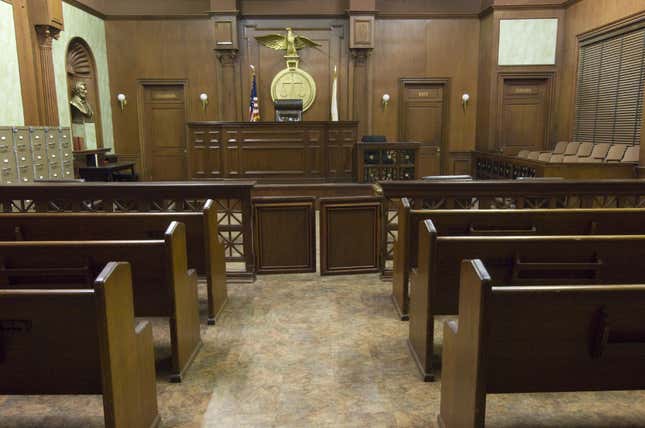
On Thursday, California’s Supreme Court struck a major blow to the cash bail system in a ruling that should honestly be adopted across the nation. In a unanimous decision, the court ruled that it is unconstitutional to hold people in jail just because they can’t afford bail and that judges must assess a defendant’s financial status when setting bail.
“The common practice of conditioning freedom solely on whether an arrestee can afford bail is unconstitutional,” the justices stated in their ruling, CBS Sacramento reports.
From CBS:
Judges can require electronic monitoring, regular check-ins with authorities or order the suspect to stay in a shelter or undergo drug and alcohol treatment, Associate Justice Mariano-Florentino Cuéllar wrote on behalf of the court – conditions that “in many cases protect public and victim safety as well as assure the arrestee’s appearance at trial.”
However, “what we hold is that where a financial condition is nonetheless necessary, the court must consider the arrestee’s ability to pay the stated amount of bail – and may not effectively detain the arrestee ‘solely because’ the arrestee ‘lacked the resources’ to post bail.”
There are times when protecting the community means the suspect cannot be released at all, they said, but then “a court must first find by clear and convincing evidence that no condition short of detention could suffice.”
It’s the kind of ruling that activists across the country have been demanding from all criminal courts. The demand intensified after the case of Kalief Browder, who was a teenager when he was jailed for a crime he didn’t commit and made to spend three years behind bars in New York City’s Rikers Island, where he was abused by guards and other inmates and put in solitary confinement for more than 400 days—and it all started because he couldn’t pay his $3,000 bail.
Due to a racist and severely flawed legal system, Browder suffered a great many injustices—which ultimately led to his suicide in 2015—but it was the inability of his parents to afford bail that kept him jailed in a situation where he should never have been jailed the first place. If rulings like that of California’s Supreme Court were applied everywhere, stories like his might not continue to happen.
According to Insider, California’s decision was brought on by the case of Kenneth Humphrey, a San Francisco Black man who is accused of robbing a man for $7 and a bottle of cologne and was charged with first-degree residential robbery and burglary against an elderly victim, inflicting injury on an elder adult, and misdemeanor theft in 2017. His bail was set at $600,000 before it was reduced to $350,000. According to the SF Examiner, Humphrey spent nearly a year in lockup because he couldn’t pay his bail.
Like all things criminal justice system-related, the cash bail system disproportionately affects Black people.
From Insider:
According to the American Bar Association, around 500,000 people are currently in jail because of their inability to pay bail while they wait for their cases to be heard.
The problem of being unable to make bail disproportionately impacts communities of color, according to the Northern California American Civil Liberties Union. The ACLU also found that Black and Latino people are far more likely than whites to be denied bail and held in pretrial detention.
The Prison Policy Initiative, a non-profit that works on prison reform, found that Black defendants are at least 10 to 25% more likely than white defendants to be denied bail or detained pretrial.
Additionally, the PPI said, “Black and brown defendants receive bail amounts that are twice as high as bail set for white defendants — and they are less likely to be able to afford it.”
Obviously, changing the cash bail system is only a drop in the very large bucket of things that need to be done in the way of making America’s justice system less classist and racist, but the ruling in California is a good start.

